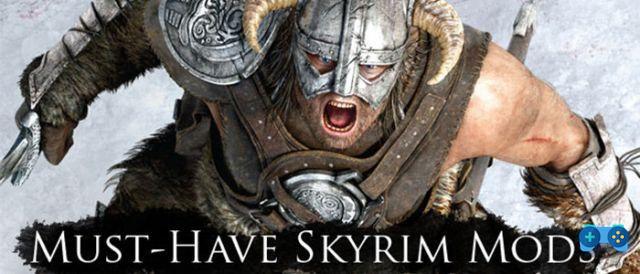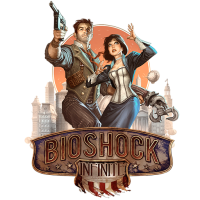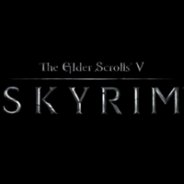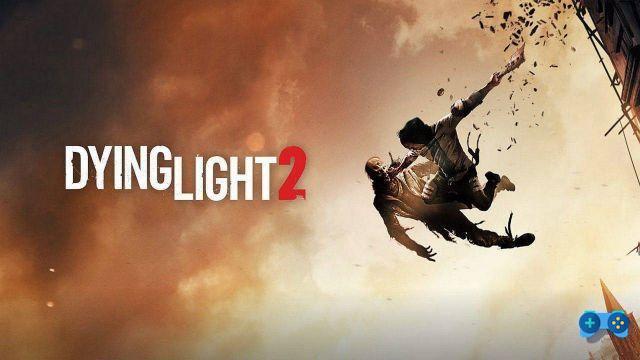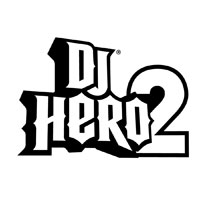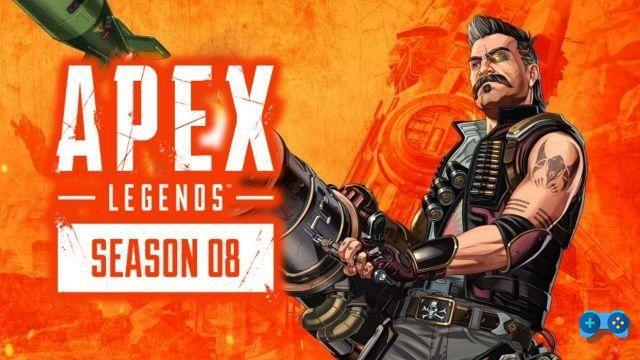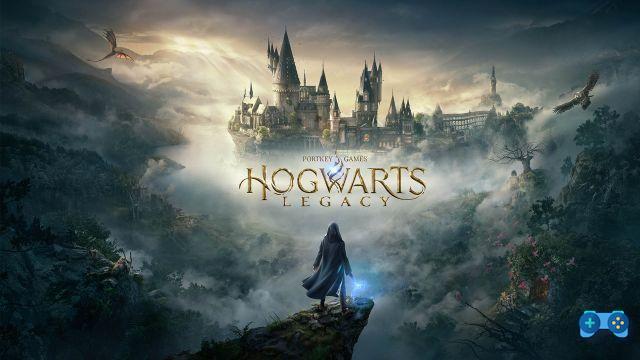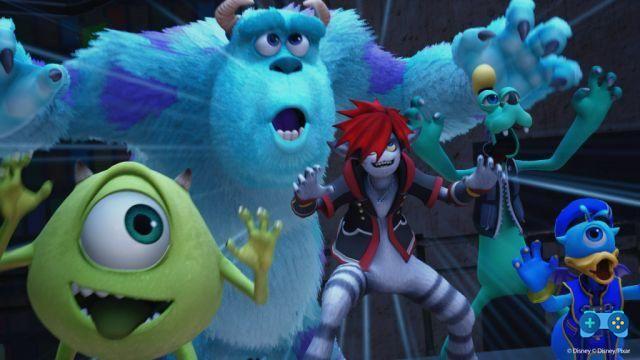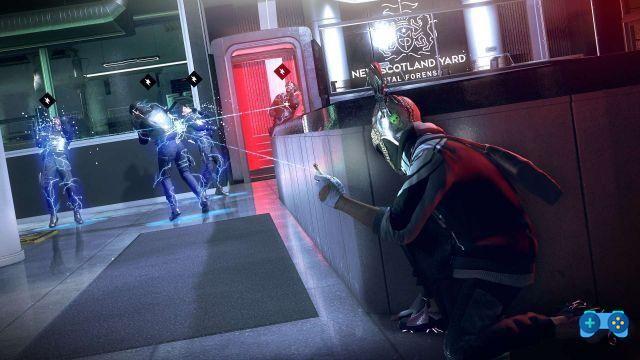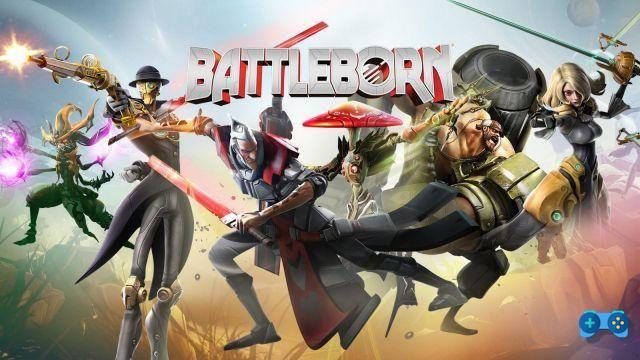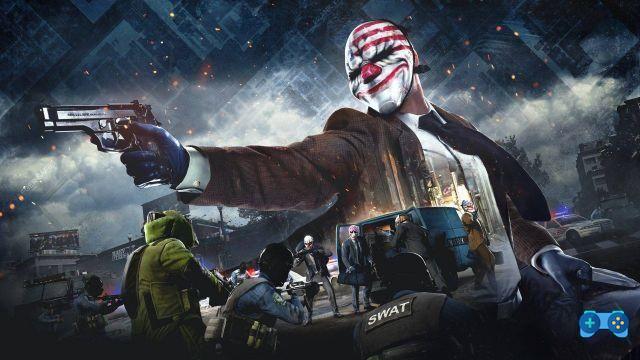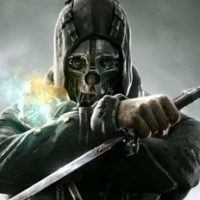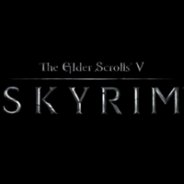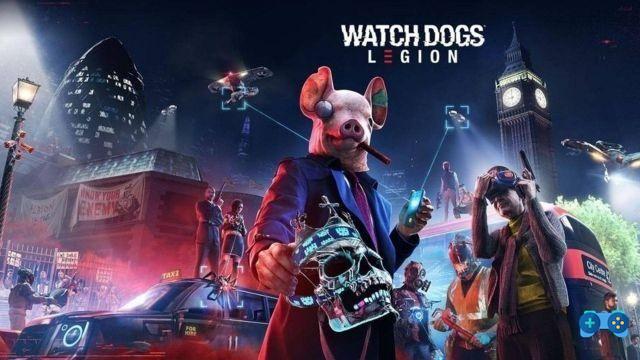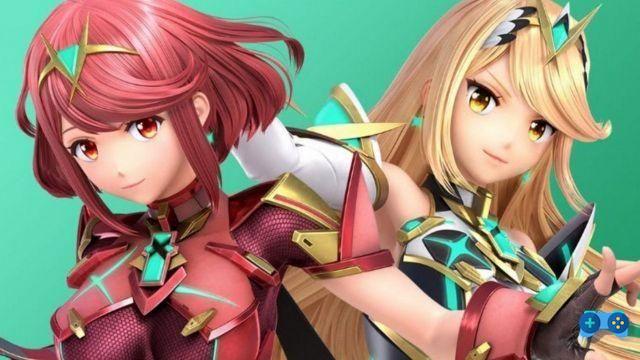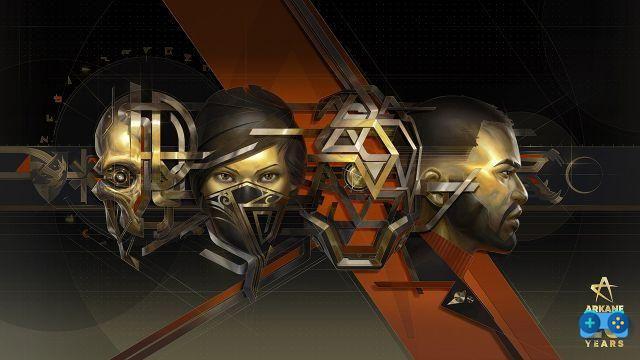
A team that develops around the user: two decades at the service of players, unfortunately not always grateful.
Many of you, the younger ones in particular, associate the name Arkane Studios to the latest titles that the software house has created: the two Dishonored and Prey. Likewise, Origin is associated with Electronic Arts' PC game distribution platform. The connection between these two names is actually very interesting, and it tells us more than it seems.
In fact, long before we could buy digital games on the EA platform, there was a development team under the name of Origin Systems. The software house was born in 1983 and dealt almost exclusively with role-playing games for over 20 years. In particular, the two most prominent intellectual properties were Ultima and Wing Commander. The studio was a pioneer in various aspects, albeit not all positive, realizing one of the first MMORPGs, Ultima Online, long before the famous World of Warcraft.
Unfortunately, it was also among the first development teams to be dismembered by the economic thirst of Electronic Arts, which had acquired it in 1992. After the enormous success of the online role-playing game, EA first decided that the software house should only deal with games online. However, he left just the time to complete Ultima IX: Ascension, a title linked to the main series of Origin that did not have the hoped-for economic success.
We all know very well how this story goes, especially since we are talking about Electronic Arts. Origin's projects were all canceled, many talented developers migrated to other shores and the studio was on its way to a slow death in 2004, after years of devoting itself solely to supporting Ultima Online. A similar end to the one that made many years after Visceral Games, and a story that macabre resembles what BioWare is experiencing.
What does all this have to do with Arkane Studios?
In 1993, Electronic Arts held a competition in France in which it sought Ultima experts. Through it, a very young Raphaël Colantonio got a job on quality control and localization of products arriving from Origin. This allowed him to watch one of his favorite series from the other side of the fence. He was also able to work on System Shock, an immersive sim developed by Looking Glass and published by Origin: another fundamental influence in his career.
System Shock takes us to the other side of the Atlantic Ocean, to Austin, Texas. Here, a very young man Harvey smith he finds work more or less at the same time as Colantonio at Origin itself, also in quality control, also on the Looking Glass game. Smith himself would later work on Ultima VIII, in 1995.
Both quickly realized that the team behind a pivotal series like Ultima, which laid the foundations for many genres of modern video game, under the control of Electronic Arts had lost all its luster. Origin Systems was sadly headed for death, and both Colantonio and Smith understood this.
The former also noted how the advent of home consoles was diverting EA's productive energies towards sports games - “EA Sports, it's in the game“. Obviously a creative like him had no interest in developing that kind of experiences, so in the late 90's he broke away from the American producer and shortly after, in 1999, he founded Arkane Studios. The uncle put the money, the other members of the team were three friends of Raphaël and the headquarters were fixed in Lyon, where it is still located today.
From the sequel to Ultima Underworld: The Stygian Abyss to Arx Fatalis
Colantonio's crazy dream was to continue his favorite series, making a direct sequel to Ultima's first-person chapter, Underworld.
It always makes you smile, when you retrace the history of a software house, meet certain names and notice some intertwining. Guess who developed Ultima Underwold? Just Looking Glass, the creators of System Shock. And from a rib of Looking Glass, a rib called Ken Levine, another study was born that developed immersive sims: Irrational Games, collaborators for System Shock 2 and then creators of the Bioshock series.
But let's go back to Colantonio. The young French creative wanted at all costs to carry on his idea and even managed to enlist Paul Neurath, founder of Looking Glass and designer of Ultima Underworld: The Stygian Abyss. Armed with good intentions and hope, the good Raphaël attempted to buy the rights from Electronic Arts to create a canonical sequel to the game. But of course we have already identified the villain of the story: the US publisher opposed an agreement, as it was easy to imagine.
Arkane Studios DNA
This only partially thwarted the plans of Colantonio and Arkane Studios. The project changed its name, of course, and became Arx Fatalis, which from the Latin can be translated into "fatal fortress". The game tells of a world in 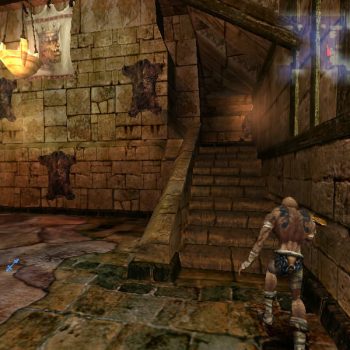 which the sun is going out and the creatures of the surface are forced to hole up in tunnels. The player wakes up in one of these, with no memory and no name, and from there he must move, encountering various races, such as trolls, goblins, dwarves and humans. The title adopts a first person view, following in the wake of Ultima Underworld, and also uses a system of points to be assigned to skills, in perfect style RPG. In addition there is also a system of crafting very basic and various side quests.
which the sun is going out and the creatures of the surface are forced to hole up in tunnels. The player wakes up in one of these, with no memory and no name, and from there he must move, encountering various races, such as trolls, goblins, dwarves and humans. The title adopts a first person view, following in the wake of Ultima Underworld, and also uses a system of points to be assigned to skills, in perfect style RPG. In addition there is also a system of crafting very basic and various side quests.
All this leaving us freedom of approach and mission resolution: we can avoid enemies in stealth mode or break down doors and fight head-on. The mechanics of use of the magic, which involved using the mouse to draw runes. The game was also not linear, but it offered total freedom regarding the order in which to face the adventure. An interconnected world to explore freely - a concept that will return in Arkane history, much later. Strange as it is, there is no dialogue system in Arx Fatalis. Lots of choice then, all linked to the gameplay: the essence of Arkane Studios is already here.
Badly received by the public?
The game got appreciation from critics, who did not fail to note the parallel with titles such as System Shock, Deus Ex and Thief, but sales were very low, Unfortunately. On the one hand due to the comparison with Morrowind and Neverwinter Night, released shortly before and inevitably of greater appeal. On the other hand, despite its appeal, Arx Fatalis was still a niche product that worked overall, but with some obvious defects and poorly balanced in difficulty.
Colantonio's will to achieve a sequel he therefore encountered the difficulty of identifying a producer. This inevitably led to the abandonment of the idea of a sequel and the studio settled with instead Ubisoft who wanted to relaunch the name Might and Magic, which cost the French company a lot. Thus it was that Arkane Studios began work on one of the reboots of the RPG series originally created by New World Computing.
Dark Messiah of Might and Magic and the tumultuous years
The project for Ubisoft followed the gameplay developed for Arx Fatalis, giving up some role-playing elements and focusing more on the action. The play system remained the same, however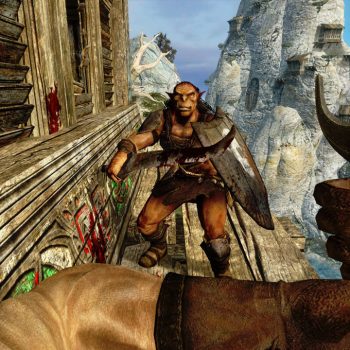 as the graphic engine. In the game it was possible to earn skill points to spend on three different skill trees: combat, magic and a third dedicated to various types of techniques. Although in Dark Messiah you could also choose an offensive approach, as in most Arkane Studios games the focus was still more on stealth. One of the biggest news, for this second title of the French studio, was the modality multiplayer online, in which you could face one-on-one duels or strategic team battles.
as the graphic engine. In the game it was possible to earn skill points to spend on three different skill trees: combat, magic and a third dedicated to various types of techniques. Although in Dark Messiah you could also choose an offensive approach, as in most Arkane Studios games the focus was still more on stealth. One of the biggest news, for this second title of the French studio, was the modality multiplayer online, in which you could face one-on-one duels or strategic team battles.
The game it was not received with particular enthusiasm, especially by the American critics, who in various respects considered it banal. Especially the Xbox version, which stripped down some of the key elements of the gameplay, was totally crushed by the main publications. In any case, the title, released in 2006, also sanctioned the end of the brief collaboration between Arkane Studios and Ubisoft, which also wanted to produce a sequel.
In those years Colantonio left the management of the team to his companions and dedicated himself to weaving relationships in the United States through the newly created headquarters of Austin, same city where Origin once resided. The production development was however left to the headquarters in France, where costs were significantly reduced.
High-sounding collaborations for unrealized projects
Arkane thus began to work together with Valve to a Half Life spin-off called Ravenholm. The Steam team and owners even came up with a dozen playable levels before the game was canceled. To date it is not known exactly if the reason was the high costs or the lack of speed of the works.
At the same time, at the end of the development of Dark Messiah, in the French studios work began on a new work that answered the name of The Crossing. According to Colantonio himself, the game would have mixed single and multiplayer in an original way, to the point of defining the particular combination that he called "crossplayer". What the guys from Arkane Studios had in mind, unfortunately, we will never know, because due to the high budget needed and the difficulty in finding a publisher, this project will also be shelved. In particular, the choice to put it aside will come following a new collaboration proposal, listen a little, by Electronic Arts.
In the pay of Electronic Arts
Exactly, the very EA that had led to the death of the Ultima series and had made Colantonio escape. The proposal was tempting indeed: to work with none other than Steven Spielberg, one of the greatest living filmmakers. The name of the project was LMNO and the offer was so tempting, even economically, that Arkane Studios canceled The Crossing and focused on this project.
But again we all know how this story ends: after just a couple of years, EA canceled the project and the talented French team found themselves supporting. So Colantonio and his companions collaborated on the multiplayer of Call of Duty: World at War first and on Bioshock 2 later. Another curious intertwining with the work of Ken Levine: the legacy of Looking Glass Studios. Surely experience not to be thrown away, the latter on the title of 2K Marin, but Arkane Studios was an extremely creative team, with the desire to create works that carried their identity.
Creativity without contracts
Do you remember Colantonio's wanderings in the United States in an attempt to weave productive relationships? At some point, between 2007 and 2008, Raphaël met Harvey smith. Yes, the very developer we talked about at the beginning, who at the same time as him had come into contact with EA and with Origin. The two already knew each other and so far had not considered the possibility of collaborating. They thought they were too similar, like creative talents. At some point, however, they reconsidered the matter, and in 2008 Smith formally joined Arkane Studios. Right from the start these two key figures of the team discussed one "ninja" drift for a future game. The look we will find in the project that will consecrate the studio a few years later.
By 2010 Arkane Studios was without contracts and no titles in development, and the management, discouraged by the situation in recent years, was about to reduce staff to keep costs down. It was at this point that the opportunity arose that will change the fortunes of the software house. They were contacted by Bethesda Softworks, who had enjoyed their early work and had in mind a stealth game set in feudal Japan that would answer the name of Dishonored.
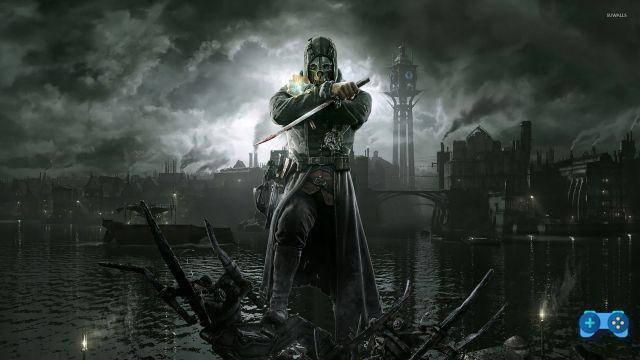
Bethesda and Arkane Studios: the partnership of the turning point
The similarities between the works of the French team and the main series of Bethesda, The Elder Scrolls, were evident. In addition, the US publisher immediately put Colantonio and his team at ease, leaving him a certain one creative freedom. The situation was ideal: on the one hand a publisher in full growth, who had just bought id Software and whose main focus has always been on subjective games; on the other, a software house born with the first person in mind e immersion. Bethesda was looking for that originality for the project she had in mind and Arkane really needed a producer who would enhance her work, giving the time and resources necessary to create products of excellent quality.
The union between the development team and the publisher was immediately so successful that it took just a few months and Arkane Studios came purchased from ZeniMax Media, the owners of Bethesda. At this point, strengthened by a big producer behind them who appreciated their idea of game design, Colantonio and Smith were able to carry on their creative ideas.
Ninja and Victorian steampunk
So it was that they followed up on their concept and the Dishonored project grew. During the works, the setting moved from feudal Japan to London and then to an imaginary land. There Dunwall conceived by the team is partly inspired by the United Kingdom of the Victorian age, but the steampunk element is very strong and in general the setting is a summary of various sources. The inspirations are so varied that someone felt the need to coin the term "whalepunk“, As everything in Dishonored is powered by whale oil.
The game will truly be the turning point for the development team. Again of course in first person, once again stealth, combat and magic: all to give the player freedom of approach. In the title we play the role of Corvo Attano, unjustly accused of having murdered the queen whose bodyguard he was, who will have to redeem his dishonored name. The adventure takes us to visit various areas of the island, in a series of missions in which we will have to assassinate an objective, being able to reach it in various ways.
Dishonored's soul is undoubtedly stealth, but the game also offers a combat system and a masterful level design. The construction of the city is realistic, vertical and open, at the same time giving extreme freedom to the player, who by exploring can discover many alternative ways that give a sense of truthfulness to the setting. Furthermore, the Dunwall conceived by the team of artists is original, socially complex and interesting to explore. The split between rich and poor is credible and creates some nuances between right and wrong that make the plague city memorable.
The game was a success across the board. Acclaimed almost in unison by the critics, who even if they underlined some defects related in particular to the plot, praised the playful system in its entirety. Dishonored also received various awards and most importantly, for the first time in the history of Arkane Studios, it was also a commercial success. The studio was finally recognized as one of the most talented and promising on the world scene.
From the first to the second Dishonored
At this point, things get easier for Colantonio, Smith and company. Strengthened by the success achieved by working together, the two directors of Dishonored decide to split up and work on separate projects. So it was that they exchanged: the Frenchman went to manage the Austin office, while the American took charge of the Lyon office.
Thanks to the welcome reserved for Corvo's adventure, Bethesda also granted further freedom and creative power to the software house, as well as technical tools. Thus it was that Arkane Studios abandoned the Unreal Engine 3 used for the first Dishonored and adopted a proprietary graphics engine. The Void Engine chosen for the team's subsequent games, it was developed from the id Tech 5 engine, owned by id Software, albeit with profound differences.
At this point the Lyon studio set to work on Dishonored 2, captained by Harvey Smith. By taking advantage of the new graphics engine and filing the critical issues of the first chapter, the team has produced a qualitatively superior product. If the first Dishonored was the unripe fruit of a crystalline talent, the second sublimates all aspects which made it a varied and fun experience. The choice between two characters with very different abilities offered an additional level of abstraction to the choice of players. In addition, the level design was even more open and at the same time refined, also offering an improved artificial intelligence of the enemies. The icing on the cake was finally the greater care under the narrative profile, with the protagonists this time talking and a series of interesting secondary stories.
The artistic maturity of Arkane Studios
While Arkane Studios Lyon took care of Emily and Corvo's adventure, the Austin studio began work on an entirely different project. Bethesda owned the following rights to Prey, a title released in 2006 that had met with some success. In the game you were on a spaceship being hunted by extraterrestrial aliens. It was a first person shooter originally developed by Human Head Studios on behalf of 3D Realms. The second chapter was announced shortly after, but went through many production difficulties, until the cancellation, which arrived between 2013 and 2014. The intellectual property then ended up in the hands of Arkane. Having the freedom to reinterpret everything, as expected Colantonio and his group in Austin threw themselves into a total reboot by Prey.
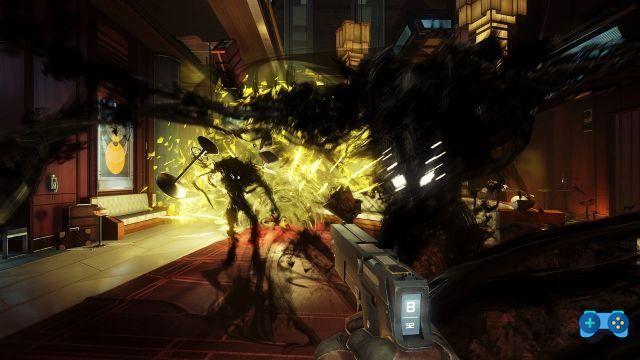
The idea was to make a spiritual sequel to System Shock, taking up that genre of immersive sim started by Looking Glass, carried out by Irrational Games and now totally in the hands of Arkane Studios. The team retrieved many of the ideas behind their first work, Arx Fatalis. After Dishonored's tiered structure, which harks back heavily to that of the Hitman series, the team returned to a more structured experience. From the beautiful compartmentalized sandbox areas of Corvo's adventure, here we have again opted for something more cohesive. For this Talos 1, the space station on which the adventure is set, is a interconnected world that the player can explore freely, choosing how to proceed, just like in the first video game of the team.
Art in various forms
Don't forget the artistic union behind the title. The space station, the result of agreements between the Kennedy government and the Soviet Union, is an evocative mix of atmospheres, ranging from the asepticity of the laboratories to the opulence of the recreational areas. There is no shortage of sequences straight out of 2001: A Space Odyssey, including some trips outside, floating in deep space. All this with the constant presence of disturbing aliens, capable of assuming the appearance of objects of various types. Skills that the player can also obtain, by choosing to transform (more or less) partially into a mimic too.
There are no unique solutions in Prey. To reach a place the player has many different possibilities: hack a numeric keypad, get the password by exploring or exploit a hidden path, or even create one from scratch. In fact, the game is present Gloo Cannon, Namely one of the greatest ideas ever seen in a video game. This weapon allows us to shoot glue, essentially giving us the possibility of petrifying the aliens that roam Talos 1. At the same time, however, we can use this device to open paths or create platforms. In this way, the player can reach areas otherwise out of range, even going beyond what the developers had anticipated.
Two excellent titles. And the results?
After the years of joint development, during which the two teams of the software house supported each other to refine their respective products, the games finally arrived on the market. In 2016 and 2017 Arkane Studios released Dishonored 2 and Prey respectively. The first got critical acclaim and sold pretty well, following the lead from the first chapter.
As for the latter, not all the press welcomed him in the same way, although he later won some important awards including the Game Award for best action game. However, after three years from its debut we can say that, net of some defects, it was one of the most interesting and innovative games seen in this generation.
Unfortunately, as has often been the case with the team, Prey's sales have not been exactly satisfactory, and now we wonder if we'll ever see a sequel.
Arkane Studios today
Meanwhile, the founder of Arkane Studios, Raphaël Colantonio, a few months after the release of the sci-fi game announced that he wanted to leave the software house. Thus it was that Harvey Smith returned to direct the Austin team, of which there is no news to date. The hope is that something is already developing behind the scenes, be it the second Prey or a new IP. We do not doubt the talent of the studio.
At the same time, Colantonio briefly helped the Lyon team to facilitate the transition to the new management. In France they were already working on a new project, of which we now know the name and release date as well as having seen the gameplay. Deathloop is the new title from Arkane Studios Lyon, out at the end of 2020 on PlayStation 5 and PC. And the soul of the team, as always, can be seen at first glance.
Looking to the future of Arkane Studios is not easy. On the one hand, the abandonment of Colantonio, on the other hand the not exciting commercial results, together with the shaky period that Bethesda is going through could cause problems for the team. Our hope is that for developers creative and innovative like the boys of Arkane there is always space and resources. Because the video game in its purest form is an interactive medium, and no one today interprets the exchange between user and medium as this study has shown it can do in the last twenty years.





